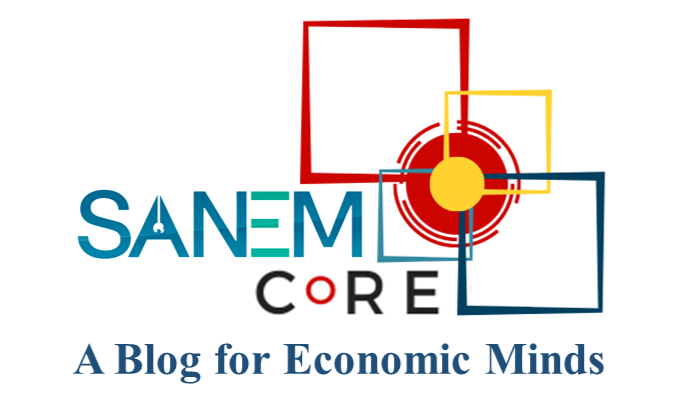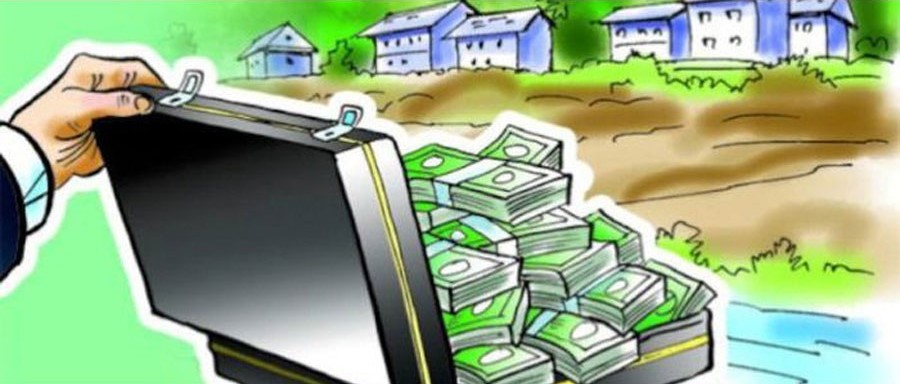The effectiveness of public expenditure is particularly crucial for a developing country like Bangladesh, where resources are limited, and the needs are vast. Despite the significant allocation of resources over the years, the efficiency of public expenditure in Bangladesh has often fallen short of expectations, raising critical questions about how resources are utilized, allocated, and managed.
According to the International Monetary Fund (IMF), Bangladesh’s public expenditure accounted for 13.05% of the gross domestic product (GDP) in 2022. Comparatively, Bangladesh’s public expenditure is lower than that of its regional peers in South Asia, which raises concerns about its capacity to meet developmental needs. In the same year, public expenditure in India accounted for 28.62% of its GDP, while in Pakistan, it was 19.95%. The Maldives, the smallest country in Asia, also had a higher public expenditure than Bangladesh, accounting for 41.52% of its GDP. Bangladesh ranked 145th out of 151 economies in terms of public expenditure in 2022, indicating a significant gap in resource allocation relative to its economic size.
The failure to improve public expenditure efficiency in Bangladesh can be traced back to several systemic issues. Government agencies often lack the capacity to implement projects effectively, which includes inadequate training, poor project management skills, and insufficient monitoring mechanisms. This deficiency often results in poorly designed projects, and ultimately the failure to achieve desired outcomes.
The lack of institutional capacity is further compounded by widespread corruption, which remains a significant barrier to public expenditure efficiency. Corruption in public projects manifests in various forms with misallocation of funds and lack of accountability undermining the effectiveness of public spending, leading to poor service delivery and public dissatisfaction. According to Transparency International’s 2023 Corruption Perceptions Index (CPI), Bangladesh ranks 10th from the bottom globally.
The inefficiency in public expenditure is aggravated by low revenue collection, which is only about 8.9% of GDP. Bangladesh falls behind its neighbors in revenue collection, with India’s at 19.39% and Pakistan’s at 12.12%. Ministry of Finance’s Monthly Report on Fiscal Position shows that Bangladesh’s tax-to-GDP ratio, a crucial measure of the nation’s capacity to fund its development priorities, has declined to 7.30% in FY23, down from 7.54% in FY22 and 7.64% in FY21. The persistent low revenue collection limits the government’s ability to fund development initiatives, as many individuals with taxable income remain outside the tax net, and the tax administration’s inefficiencies contribute to this problem. The inability to mobilize domestic resources effectively has led to a reliance on external funding, which is not sustainable in the long term.
Public expenditure has often been characterized by a lack of strategic planning and prioritization, resulting in funds being allocated to less impactful projects rather than addressing critical developmental needs. The allocation of public expenditure has long been a burning issue, with several critical challenges that need to be addressed. One of the primary concerns is the imbalanced allocation of resources across different sectors. In Bangladesh, public spending is disproportionately directed towards sectors like infrastructure and defense, often at the expense of essential social services such as education, health and social protection. Bangladesh’s health budget has consistently been around 0.7% of GDP, whereas India’s public healthcare spending is approximately 1.58% of GDP. The education budget is allocated 1.69% of GDP in Bangladesh. However, the 2015 Incheon Declaration recommends that national governments allocate 4-6% of their GDP to education. This skewed allocation limits the government’s ability to address pressing social issues, such as poverty reduction, inequality, and the development of human capital, which are crucial for long-term sustainable development.
Another significant challenge in the allocation of public expenditure is the noticeable regional disparities. Resources are disproportionately concentrated in urban centers, particularly the capital city Dhaka, leaving rural and underdeveloped areas with insufficient funding. A study by the Institute for Planning and Development (IPD) revealed significant disparities in public investment between urban and rural areas. In FY 2021-22, approximately 63% of the housing and community services allocation from the Annual Development Programme (ADP) budget was concentrated in three major metropolitan areas: Dhaka, Chattogram, and Gazipur. Specifically, Dhaka received the largest share at 37.24%, followed by Chattogram with 17.40%, and Gazipur with 8.14%. In comparison, Rajshahi received 5%, Khulna 3.35%, Narayanganj 2.76%, and Cox’s Bazar 2.41%. This unequal distribution of public spending worsens regional inequalities, hindering balanced regional development and prolonging the socio-economic divide between urban and rural areas.
Political influence and patronage also play a significant role in the inefficiencies of public expenditure. In Bangladesh, public projects are frequently prioritized based on political motivations rather than their potential economic or social impact. Elected officials often push for projects that benefit their constituencies or political supporters, leading to suboptimal resource allocation and the misdirection of public funds. This political interference undermines the integrity of public spending and contributes to the overall inefficiency of resource utilization.
To improve the efficiency and effectiveness of public expenditure in Bangladesh, a comprehensive approach is needed, one that addresses the underlying causes of the current challenges. Strengthening institutional capacity is a crucial first step. This can be achieved by investing in the training and development of public officials, adopting modern management practices, and leveraging technology to enhance project design, implementation, and monitoring. By building stronger institutions, Bangladesh can ensure more effective resource utilization and better project outcomes.
Improving tax collection is crucial, which can be achieved through broadening the tax base by identifying and bringing more taxpayers into the net, particularly in sectors that have been historically under-taxed. Reforming tax administration is important by modernizing tax collection processes, including digitization and capacity building for revenue officials.
While the country has made progress in various sectors, the inefficiencies in resource allocation, compounded by corruption, low revenue collection, and regional disparities, have hindered its ability to fully realize its development potential. Addressing these challenges requires a multi-faceted approach that includes strengthening institutional capacity, enhancing transparency, improving tax collection, and ensuring equitable allocation of resources. By adopting strategic long-term planning, prioritizing investments in social services, and focusing on balanced regional development, Bangladesh can enhance the effectiveness of its public expenditure. This, in turn, will contribute to sustainable economic growth, reduced poverty, and a more equitable society. The path forward is clear, but it demands concentrated effort, political will, and a commitment to reforms that can transform the way public resources are utilized, ensuring that every taka spent contributes meaningfully to the nation’s progress and prosperity.
This Article was first published in the September, 2024 edition of the Thinking Aloud.




RECENT COMMENTS